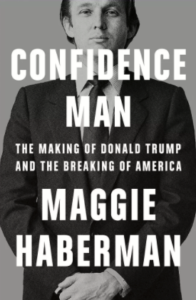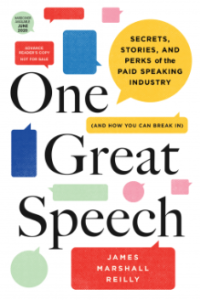Random thoughts on writing, storytelling, ideas, new and old media, and the lit’ry life, by Charles Euchner
 The Power of Leverage: To tell a great story, identify the leverage that different characters use against each other. Archimedes said: “Give me but a firm spot on which to stand, and I shall move the earth.”
The Power of Leverage: To tell a great story, identify the leverage that different characters use against each other. Archimedes said: “Give me but a firm spot on which to stand, and I shall move the earth.”
Leverage–not just power or wealth–is a key to conflict. With secret knowledge or hidden alliances, I can hit you in a vulnerable spot. With control over timing, I have use my resources more effectively. With hidden assets, I can strike mere decisively.
On “Succession,” a TV drama about a fictional cable news network, the characters constantly leverage resources (including relationships) to gain something better. Kendall leverages knowledge of his father’s mental decline and other dirty laundry inside the company to stage a takeover bid. Tom leverages his relationship with Shiv to gain favor and position in the company. Later he uses Shiv’s confidential information to gain favor with her father.
Greg, who leverages his family ties to get a job in the company, leverages Comfry’s anger at Ken to get a date with her. Once he wins her heart, he leverages the higher status he gains with this relationship to gain the attention of a duchess. The cynical Tom and
Shiv approve his maneuver. “She’s a great date ladder,” Shiv tells Greg about Comfry. “People will see her with you and—no offense—they’ll say what’s going on there?” Greg uses this new air of mystery to seduce a comely countess from Luxembourg. To avoid direct confrontations, “Succession” characters leverage their assets to get something better.
The Power of Words: The words we use to describe animals and butchering determines how people feel about eating meat. Take a look at this brief clip:
 Maggie, a Girl of the Tweets: When Maggie Haberman revealed that Trump was flushing papers down the White House toilet, the reaction on Twitter was harsh. Her revelation came as part of her early promotion of Confidence Man, her book on Donald Trump.
Maggie, a Girl of the Tweets: When Maggie Haberman revealed that Trump was flushing papers down the White House toilet, the reaction on Twitter was harsh. Her revelation came as part of her early promotion of Confidence Man, her book on Donald Trump.
Jon Cooper said: “I’m sorry, but was the NY Times paying Maggie Haberman to report the news or to sit on juicy stories so she could get a lucrative book deal?” Jesse Taylor: “I know I’m a simple country boy, but I don’t really understand this practice of withholding newsworthy information to fill up a quickly forgotten book.” Bernard Silverman: “The media have been an abject failure in covering Trump since before his presidency but maybe it was because reporters were too busy making notes for books!”
Reporters often get scoops on the condition that they “embargo” it, or not report it until a later date. If they don’t agree to embargo the info, sources don’t give them the info. It’s a devil’s bargain. Journalism is full of devil’s bargains. But reporters with integrity include a desire for the whole truth in their calculations.
Haberman’s real failure as a reporter is to simply serve as a conveyor belt for whatever junk people tell her on the phone, for their own purposes. She never tried to put all the pieces together. And she held back on the truth for fear of insulting her sources–the first of whom was always Trump. With Maggie, it’s all transactional.
 The His/Her Problem Revisited: Just found this gem in a Ph.D. thesis: “The president is, of course, in a unique institutional place to shape the public agenda. When she speaks, the nation listens and her party falls in line.” I appreciate the gender inclusivity of the statement. Women should be president. It’s a major stain that the U.S. has had 46 male presidents and zero female presidents. But I’m not sure that pretending we have a woman president is the answer. Maybe the answer is to follow the British lead and say “their” instead of “him” and “her.” Yeah, I don’t like it grammatically. But to be both accurate and aspirational and inclusive, do we have a better choice?
The His/Her Problem Revisited: Just found this gem in a Ph.D. thesis: “The president is, of course, in a unique institutional place to shape the public agenda. When she speaks, the nation listens and her party falls in line.” I appreciate the gender inclusivity of the statement. Women should be president. It’s a major stain that the U.S. has had 46 male presidents and zero female presidents. But I’m not sure that pretending we have a woman president is the answer. Maybe the answer is to follow the British lead and say “their” instead of “him” and “her.” Yeah, I don’t like it grammatically. But to be both accurate and aspirational and inclusive, do we have a better choice?
 Focus. Seriously … Focus: Just take the title to heart and you will do a better job at speaking or writing. James Reilly’s One Great Speech drives home the most important (and hardest) challenge of speakers: find the ONE thing to engage your audience, which you can uniquely offer.
Focus. Seriously … Focus: Just take the title to heart and you will do a better job at speaking or writing. James Reilly’s One Great Speech drives home the most important (and hardest) challenge of speakers: find the ONE thing to engage your audience, which you can uniquely offer.
I read this book not just because I often speak and want to get better and market myself better, but also because I’m a writer who teaches writing. I am always looking for tips to improve my ability to connect, whatever the medium and whatever the audience. This book produces all that in spades. It’s full of thought-provoking material for anyone who wants to say something, somewhere, to someone, in one or another medium.
Reilly offers a useful challenge (which you should read about yourself): Pick three topics and write no more than six sentences about each. It ain’t easy. I have talked to different audiences about all kinds of topics: the civil rights movement, urban politics, presidential politics, writing, and much more. But doing this exercise, I realized how much I need to hone my pitch. That, in turn, caused me to think long and hard about how I can best use my knowledge and experience. That’s been an incredibly useful process, which will affect my work in the months (and possibly years) to come.
So here’s to James Reilly, a smart and sharp guy with an essential message for anyone with a message. If you want to do this kind of work, take heed.
 Less is More: I have been critical of Malcolm Gladwell. His book David and Goliath is a big mess, full of over-reading and contradictions. Still, man, he can tell a story as well as anyone and he cares about ideas that matter. In Talking With Strangers, Gladwell writes:
Less is More: I have been critical of Malcolm Gladwell. His book David and Goliath is a big mess, full of over-reading and contradictions. Still, man, he can tell a story as well as anyone and he cares about ideas that matter. In Talking With Strangers, Gladwell writes:
Many years ago, when my parents came down to visit me in New York City, I decided to put them up at the Mercer Hotel. It was a bit of mischief on my part. The Mercer is chic and exclusive, the kind of place where the famous and the fabulous stay. My parents—and particularly my father—were oblivious to that kind of thing. My father did not watch television, or go to the movies, or listen to popular music. He would have thought People magazine was an anthropology journal. His areas of expertise were specific: mathematics, gardening, and the Bible.
I came to pick up my parents for dinner, and asked my father how his day had been. “Wonderful!” he said. Apparently he had spent the afternoon in conversation with a man in the lobby. This was fairly typical behavior for my father. He liked to talk to strangers.
“What did you talk about?” I asked.
“Gardening!” my father said.
“What was his name?” “Oh, I have no idea. But the whole time people were coming up to him to take pictures and have him sign little bits of paper.”
If there is a Hollywood celebrity reading this who remembers chatting with a bearded Englishman long ago in the lobby of the Mercer Hotel, please contact me.
For everyone else, consider the lesson. Sometimes the best conversations between strangers allow the stranger to remain a stranger.
In 237 words, Gladwell manages to introduce us to a worthwhile character, tell a heart-rending story, and distill the message of his whole book.
Well done, Gladdy.
Moonshot: July 20 was the 50th anniversary of the Apollo astronauts walking on the moon for the first time. How did it happen? Well, it started with a speech by President John F. Kennedy. On May 25, 1961, Kennedy delivered a rare address before a joint session of Congress calling for America to reach the moon by the end of the decade. His September 12, 1962 speech at Rice University is more famous; that’s when he famously proclaimed: “We choose to go to the moon in this decade and do the other things, not because they are easy, but because they are hard.” But the earlier speech reveals more strategies of influence.
In that address, Kennedy: (1) showed respect for Congress, saying that the legislative branch needed to consider his ideas carefully and judge then on their merits; (2) emphasized the distinct scientific challenges required for a successful moonshot; (3) acknowledged the expense of the Apollo mission, not pretending that it would be cheap; (4) linked the space race to the Cold War with the Soviet Union, while also calling for a test ban treaty with the U.S.S.R.; and (5) set a clear frame for congressional action, saying Congress should reject the mission if it’s not prepared to go all the way.
As always, Kennedy showed some grace notes, calling French President Charles De Gaulle “the great captain” of the Western world. This address succeeded not because of its soaring rhetoric but because of its respect for others and for the political process. (Read and listen to the speech here.)
 Quote of the Year (Seriously): Shirley Jackson, in “Memory and Delusion,” published in The New Yorker in 2015: “The very nicest thing about being a writer is that you can afford to indulge yourself endlessly with oddness, and nobody can really do anything about it, as long as you keep writing and kind of using it up, as it were. I am, this morning, endeavoring to persuade you to join me in my deluded world; it is a happy, irrational, rich world, full of fairies and ghosts and free electricity and dragons, and a world beyond all others fun to walk around in. All you have to do—and watch this carefully, please—is keep writing. As long as you write it away regularly, nothing can really hurt you.” Read that last part again: Keep writing. As long as you write it away regularly, nothing can really hurt you.
Quote of the Year (Seriously): Shirley Jackson, in “Memory and Delusion,” published in The New Yorker in 2015: “The very nicest thing about being a writer is that you can afford to indulge yourself endlessly with oddness, and nobody can really do anything about it, as long as you keep writing and kind of using it up, as it were. I am, this morning, endeavoring to persuade you to join me in my deluded world; it is a happy, irrational, rich world, full of fairies and ghosts and free electricity and dragons, and a world beyond all others fun to walk around in. All you have to do—and watch this carefully, please—is keep writing. As long as you write it away regularly, nothing can really hurt you.” Read that last part again: Keep writing. As long as you write it away regularly, nothing can really hurt you.
 Keep It Short: The Supreme Court, exasperated by long-winded filings, has decided to lay down the law for lawyers appearing before the Court. Briefs on the merits will be limited to 13,000 words and amicus briefs to 8,000 words. In a small victory for logorrhea, the Court kept its 6,000-word limit for reply briefs. Naturally, the counselors are complaining–at length. “The bar will undoubtedly adapt to the court’s rules and have fewer words to develop arguments fully in merits briefs and respond to arguments in amicus briefs,” David Frederick, a partner at Kellogg, Hansen, Todd, Figel & Frederick, groused. “This development further tilts the playing field toward well-funded interests that can develop ancillary arguments in amicus briefs. To the extent the rules change advances that trend, it’s unfortunate.” Well, that’s one way of looking at it. Another way: Brevity is the soul of wit.
Keep It Short: The Supreme Court, exasperated by long-winded filings, has decided to lay down the law for lawyers appearing before the Court. Briefs on the merits will be limited to 13,000 words and amicus briefs to 8,000 words. In a small victory for logorrhea, the Court kept its 6,000-word limit for reply briefs. Naturally, the counselors are complaining–at length. “The bar will undoubtedly adapt to the court’s rules and have fewer words to develop arguments fully in merits briefs and respond to arguments in amicus briefs,” David Frederick, a partner at Kellogg, Hansen, Todd, Figel & Frederick, groused. “This development further tilts the playing field toward well-funded interests that can develop ancillary arguments in amicus briefs. To the extent the rules change advances that trend, it’s unfortunate.” Well, that’s one way of looking at it. Another way: Brevity is the soul of wit.
On Shame: Bret Stephens writes on the annihilation of shame in American culture. Contrasting the deep shame that Charles Van Doren felt for his role in the quiz show scandal of the 1950s, Stephens notes the lack of any sense of responsibility for destructive words and actions in modern America. So what is this loss of shame all about? It is about hatred–not just of standards and consequences, but also people who need basic honesty and integrity in our community to live a decent life. When you see someone preening about, gleefully attacking others and tearing down the basic norms that make society work, note their hatred. Then ask where that hatred came from. (April 13, 2019)
Mapping Ideas: We’ve all seen those horrifying video segments showing ordinary Americans unable to find a state or a nation on a map. But finding the right mix of maps and explanation isn’t always easy. The online site Vox makes it easy. With a brilliant blend of words and images, Vox makes it easy to track even the most complicated subjects. I discovered Vox’s trove while working on a book about World War I’s aftermath (see the history of the war in 40 maps). Check out Vox’s maps of World War II, the D-Day campaign, 500 years of European colonialism, the Middle East, the global refugee crisis, and the evolution of the Republican Party. Also check out the complete Vox index of maps and charts.
 FOLLOW US AT TWITTER.COM/AWRITERATLARGE
FOLLOW US AT TWITTER.COM/AWRITERATLARGE
